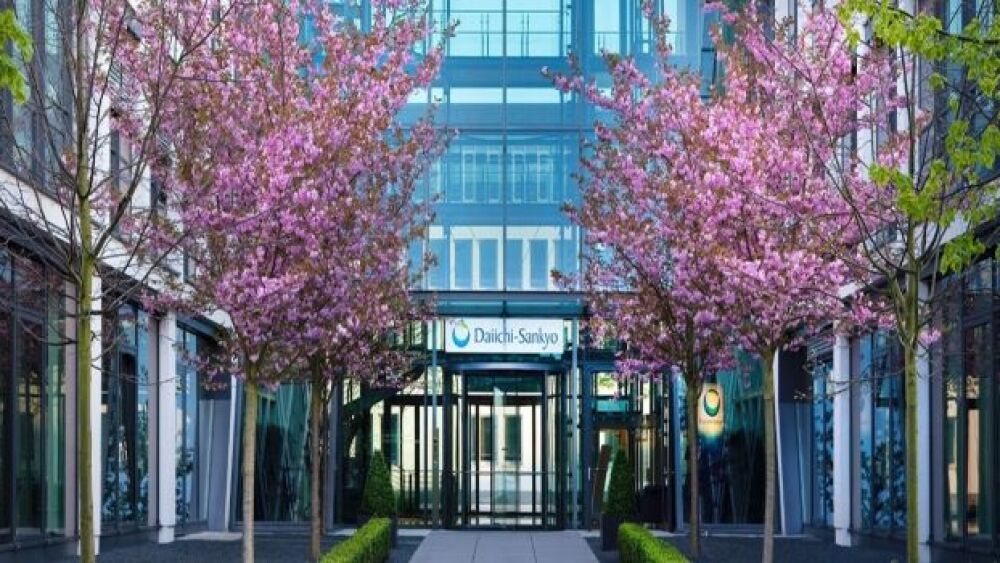After being rejected by an FDA advisory panel four years ago, Vanflyta is now approved across three phases of treatment for acute myeloid leukemia patients with the FLT3 gene mutation.
Pictured: Building with Daiichi Sankyo sign/photo courtesy of Daiichi Sankyo
Daiichi Sankyo’s Vanflyta (quizartinib) finally crossed the finish line Thursday when the FDA approved the blood cancer treatment which was denied four years ago.
Vanflyta is the first FLT3 inhibitor approved for FLT3-ITD positive acute myeloid leukemia (AML) across three phases of treatment—induction, consolidation and maintenance—in newly diagnosed patients, according to the company’s press release. The approved use combines the drug with standard cytarabine and anthracycline induction and cytarabine consolidation, and as maintenance monotherapy following consolidation chemotherapy.
The FLT3 gene is responsible for regulating the blood cell production process. Mutation of the gene drives blood cancer growth, dropping the five-year survival rate for this type of AML to 20%.
Previously approved in Japan, an FDA advisory panel voted against the approval of Vanflyta in 2019, stating that the efficacy benefit did not outweigh the safety risks for AML patients.
Daiichi Sankyo came back with an NDA, accepted in October 2022, with data from a Phase III trial which showed the quizartinib regimen reduced risk of death by 22.4% compared to those on chemotherapy. The median duration of complete remission was 38.6 months for patients on Vanflyta compared to 12.4 months for those on placebo plus standard chemo.
The FDA approval for the drug comes with a Boxed Warning for three heart disorders: QT prolongation, torsades de pointes and cardiac arrest. The treatment will be available only through a restricted Risk Evaluation and Mitigation Strategy (REMS) program, and only prescribed by certified healthcare providers and pharmacies.
A companion diagnostic test from Invivoscribe was also approved by the FDA to identify patients with FLT3-ITD positive AML to confirm eligibility for Vanflyta. The mutation assay is also used to assess patients for treatment with Vanflyta’s competition.
Novartis’ Rydapt was the first FLT3 inhibitor to hit the market for first-line treatment in combination with standard therapy in 2017. It’s currently in Phase II testing for pediatric AML with a readout expected in 2026.
Astellas’ Xospata has a more limited label with approval only for patients whose disease has not improved with treatment or returned. The company has been attempting to expand the label for Xospata but without success so far. The most recent flop was a Phase III trial evaluating the drug as a maintenance therapy following allogeneic hematopoietic stem cell transplantation for FLT3-ITD AML.
Daiichi Sankyo is marketing Vanflyta at $546 per tablet, according to Reuters, a price comparable to Rydapt. Xospata comes with the highest price tag at $22,500 for a month’s supply, or $750 a day.
The AML drug is the third oncology medicine to be approved in the U.S. for Daiichi Sankyo.
Kate Goodwin is a freelance life science writer based in Des Moines, Iowa. She can be reached at kate.goodwin@biospace.com and on LinkedIn.






